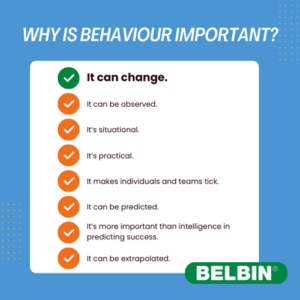Team Coaching – why?
Team coaching creates a space where the dynamics and purpose of the team can be explored to build a greater purpose that addresses the needs of all stakeholders. Training and consultancy often entail an ‘expert’ intervening and imparting expertise and knowledge to deliver a prescribed solution.

Team coaching by contrast encourages and empowers team members to:
- Engage in mutual respect and learning;
- Increase their understanding of themselves and other stakeholders;
- Take ownership in identifying and diagnosing their own problems and co-creating their own solutions;
- Improve performance through reflection and dialogue.
“Organisations of the future will be governed by networks of teams.”
Deloitte, 2017
We are only just beginning to understand the power, potential and importance of teams.
Almost 9 out of 10 companies surveyed by EY agreed that the problems confronting them are now so complex that teams are essential to provide effective solutions (EY, 2013).
Team coaching is not just a means of improving team performance, but a method for attaining sustained growth and improvement for the team. Peter Hawkins, author of ‘Leadership Team Coaching’, refers to a ‘continuum of coaching’.
It creates a collective focus: an iterative, reflective process of continued learning whereby teams are able to review and improve their own performance and processes in order to achieve their goals.
Team coaching might include:

- Clarifying the team’s mission and vision;
- Building trust and psychological safety;
- Facilitating more effective communication and openness;
- Recognising and developing a growth mindset within the team;
- Improving internal and external relationships;
- Promoting reflection, dialogue and learning;
- Help with addressing and managing conflict;
- Addressing real business issues as part of the learning process;
- Shifting the team’s frame of reference so that they can think anew about their collective experience;
- Creating a sustainable and conducive team environment;
- Making sound decisions in line with the team’s objectives.
“Belbin’s endurance gives it credibility. It’s got depth. And it’s also got great purpose. Attending the course in London was a bit of a ‘lightbulb’ moment, as although I’d ‘known’ about Belbin for many years, it was a bit like knowing that you have a new set of spanners in your toolbox – they’re very pretty, but useless unless you use them! However, an enthusiastic presentation from Belbin and an interactive day made me see just how important the application of the Belbin principles would be.”
Chris Jackson, CEO Jarra CIC, entrepreneur, educator, mentor, team coach
Team coaching vs. individual coaching (or 1:1 coaching)
Team coaching is distinct from other forms of coaching.
Individual performance is dependent on team climate and environment, and high individual performance is not always commensurate with high team performance. Often, positive changes to individual behaviour are lost long-term if the environment is not supportive, or indeed, high performers leave the organisation altogether.
Whilst 1:1 coaching focuses on the individual, team coaching aligns individual priorities with team priorities, making the link between individual and team more conscious. It focuses on the system of which individuals are part, and situates learning within a team context in order to deliver performance improvements.
Team coaching is a holistic method that drives lasting change. It acknowledges that teams are dynamic systems with their own values, standards, touch points and complex rules of behaviour that are likely to be unknown to outsiders – in short, that they are more than a collection of individuals.
I’m not the expert’ – the art of asking the right questions
In this video from our Belbin webinar series, Chris Jackson describes how he uses Belbin Team Roles in team coaching as part of the BA (Hons) Team Entrepreneurship at Bishop Grosseteste University.
Team coaches – What makes a good team coach?
Whilst consultants often come in from outside to diagnose problems and offer advice, the team coach is comfortable with not being ‘the expert in the room’.
A good team coach:
- Is able to let go of the need to control outcomes and embrace uncertainty and complexity;
- Can work with the team by asking challenging questions (rather than offering advice) and encourages teams to find their own answers;
- Supports the team to assess the status quo and empowers them to design their own next steps;
- Encourages the team to experience their journey as an experiment rather than a process with a defined start and end point.
- A successful team coach can change the team’s focus from solutions to learning.
Traditionally, pedagogical education teaches children in a prescriptive way. Andragogy facilitates learning for adults, who are self-directed learners. Team coaching is a form of heutagogy – the management of learning for self-managed learners.
According to Tammy Turner (founder of the Centre for Coaching Development and Supervision), team coaches require a high level of cognitive and socio-emotional maturity. They must be able to meet the team and its members at their individual and collective levels.
[Team coaching] enabl[es] a team to function at more than the sum of its parts, by clarifying its mission and improving its external and internal relationships. It is different therefore from coaching team leaders on how to lead their teams, or coaching individuals in a group setting.”
– Hawkins and Smith, 2006
The benefits of team coaching
Team coaching:
- Enables the team to recognise and value the contribution each team member can make, and creates an atmosphere in which people play to their strengths as much as possible;
- Gives the team a shared purpose while appreciating individual contributions;
- Enhances communication both within and outside the team, assisting team members in managing the team’s standing and connections with important stakeholders;
- Fosters a psychologically safe environment that encourages free communication, sharing concerns and admitting errors without fear of punishment. This results in a greater degree of trust and co-operation;
- Encourages healthy conflict among team members, which improves performance rather than hindering it;
- Clarifies the team’s priorities and resolves conflict between these and the priorities of individuals;
- Leads the team to question assumptions about the efficacy of their procedures and processes, and to introduce adjustments as necessary;
- Promotes the ability to navigate complex situations;
- Makes the team more creative, innovative and resilient through increased trust and psychological safety, and more efficient collaboration.
What are the limitations of team coaching?
NB! Team coaching only works for ‘real teams’, not for pseudo-teams. (Pseudo-teams are groups who work together and appear to be a team, but in fact do not share objectives and a purpose.) In this context, team coaching is unlikely to be effective in yielding sustainable performance improvements.
NB! Teams need to have a desire for ‘collective improvement’. In other words, in order to be effective, the will to learn from team coaching and introduce sustained change needs to come from within and cannot be imposed from without.
What is Team Coaching?
Belbin webinar series with Dr. Elena Hinova-McNamee
“I wanted to find something that gives a more deep and sustainable influence and impact on the team, and this is how I came across Team Coaching.” – Elena Hinova-McNamee
Elena has shared her thoughts from her experience and own team coaching journey. She expanded on how in Team Coaching the team is the expert – they know their challenges, and the team coach creates that safe environment, that safe container where they can find the solutions to become a thriving, high performing team, whatever they are aiming at.
“The most high-performing teams are self-coaching.”
– Jon Katzenbach, The Wisdom of Teams
How can you use Belbin Team Roles in team coaching?
Belbin Team Role theory and team coaching: beginning with the team
Team coaching and Belbin theory have real synergy, because both begin with the team: the team’s objectives, needs and performance.
Many psychometric or ‘personality’ tests begin with the individual as the ‘building block’ of the team and focus inwardly on personality traits which may or may not have a bearing on the way the team operates.
By contrast, Belbin measures behaviour which can be observed by others in the team. As such, Belbin theory celebrates individual difference within the context of the team as a complex organism, recognising the importance of the team’s rich history, priorities, objectives, rules of engagement, culture and values. Read more Eight Reasons Why Behaviour is Important
Dr Meredith Belbin’s research set out to answer the question: “Why do some teams succeed where others fail?” The focus from the outset was not on the individual per se, but on discovering the characteristics needed for effective team performance.
Using the Belbin reports for team coaching
The Belbin reports are an essential tool for team coaching, since they offer a new kind of ‘intelligence’ for the team to disseminate. They:
- Enable team members to understand their own – and one another’s – strengths and weaknesses;
- Provoke discussion within the team rather than providing concrete answers – feedback doesn’t have to be ‘swallowed whole’ or rejected outright;
- Provide ideas and discussion points that the team can use as a springboard;
- Bring the team in on discovery and analysis;
- Promote learning around team culture.
An iterative process
The Belbin reports provide a ‘snapshot’ of the Team Role behaviours present in the team at a given time.
As the team evolves with team coaching practice, the Belbin process can be repeated to map developments in the team’s culture and function, and to reflect on current and future needs.
Interested? Write me. Let's talk.
Read more on the topic
The biggest skeptic is the best decision maker
One thing is for certain – skepticism is a trait both positive and necessary for a team! The reason many of us see skepticism in a negative light arises from a skeptic’s difficulty in communicating pleasantly and diplomatically. In order for a team to make the most out of their skeptic, they must first be discovered, then understood and finally communicated with in the proper way.
Assertiveness and difficult people
Assertiveness is one of the most important skills for teamwork, the presence of which – or lack thereof – we only notice once the situation has gotten tense, interpersonal relationships are on the brink, differing opinions among teammates abound and emotions are boiling.
Eight Reasons Why Behaviour Is Important
There are a number of factors underlying behaviour: personality, motivation, values, abilities and environment, to name a few. So why measure behaviour in particular?


